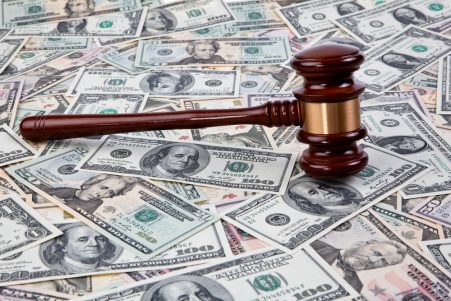Can creditors sue if you don’t repay your debt?

While the law affords consumers certain protections against unfair debt collection practices, under certain circumstances, lenders can still take legal action against you if you fail to pay your debts. The type of legal recourse taken will depend on whether your debt is secured or unsecured.
Secured debts
What is secured debt?
Secured debts are any debt for which you pledged collateral in return for a loan, line of credit, or purchase. Collateral is any asset creditors can legally seize in the event you default on your debts, commonly a mortgage or auto loan. Other types of secured debt include home equity lines of credit, pawn shop loans, and accounts receivable. Because assets are at stake, lenders consider secured debt less risky than unsecured debt.
What legal action will creditors take if you can’t pay secured debt?
Since homes and cars are the most common form of collateral private or individual borrowers own, we’re going to focus on those assets in this section.
When you sign a contract for a home or car, generally, you are giving the lender permission to foreclose on or repossess the property if you fall behind on your payments or cannot repay the debt.
If you fall behind on your car payments, even by just a month or two, in most states, the lender can repossess the vehicle without providing notice in advance. You might not have access to the vehicle anymore, but you are still responsible for the deficiency or the difference between whatever the creditor resold the car for and your remaining loan balance. You may even be responsible for the lender’s attorney fees and resale costs.
Unlike vehicle repossessions, foreclosures often take much longer. Depending on the state you live in, creditors will initiate either a judicial foreclosure or a nonjudicial foreclosure. The former requires the lender to file a lawsuit before they can shut you out, while the latter allows foreclosures without a court order. Provided state statutes allow deficiency judgments, you may still owe on your mortgage if the house sells for less than what it is worth or the original loan amount.
Unsecured debts
What is unsecured debt?
Unsecured debt is any loan not backed by collateral or property, such as credit cards, medical bills, student loans, and utility payments.
Will creditors sue you if you default on unsecured debt such as credit cards?
Generally speaking, creditors or collection agencies will first determine the probability of collecting a credit card debt if they sue. If, for example, you do not have steady or significant income or do not own assets of substantial value, creditors may forgo a lawsuit because they deemed collection unlikely or decided the cost to sue is greater than the chance to collect. On the other hand, if the creditor decides you earn sufficient income or are likely to earn a high salary in the future, they may pursue legal action.
There are statute of limitations (SOL) imposed on credit card collections to consider. SOLs vary greatly depending on the state you live in and range anywhere from 3 to 15 years from the date of your last payment. Whether your debt is considered time-barred or not, however, is tricky – even if it is, you still technically owe the debt even though creditors can no longer file a lawsuit against you.
If a creditor files a lawsuit and wins, there are multiple ways they are allowed to collect the debt, including levying your bank accounts, garnishing your wages, and obtaining a lien.
In most states, creditors are allowed to garnish or take up to 25 percent of your paycheck to apply to your debt. They may even be given court permission to take funds directly from your bank account. Income usually exempt from collections include social security, retirement savings, unemployment and disability benefits, and workers’ comp.
Liens are the right to your property, essentially converting unsecured debt to secured debt. When a creditor obtains a lien, they have the right to collect the amount you owe when you sell the property, such as your home, car, or jewelry, but not the right to immediately seize said assets.
Even if you’re unable to make payments, it’s important to never ignore your debts.
Legal action is usually the last-ditch effort in the collection process, an effort that puts your property and livelihood in jeopardy. There are many options, including debt settlement, that may prevent creditors from seeking legal restitution. The avenue you choose to take will ultimately depend on your situation. To see if debt settlement is right for you, please contact our financial experts at New Era Debt solutions or fill out our form for your free debt analysis.
